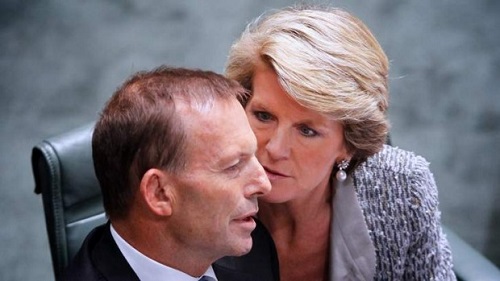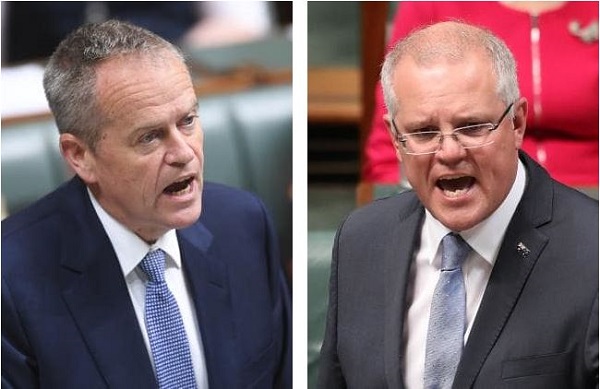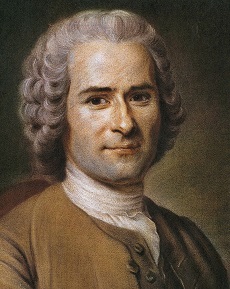
Dennis Atkins talking to the ABC on Tuesday afternoon said that on the weekend Abbott asked Julie Bishop and Malcolm Turnbull to say that they wouldn’t challenge for PM, or so the story goes. Bishop refused, apparently. This became a story on Tuesday morning. Bishop came out with the necessary words, but it took her 9 hours to do it.
Atkins reckons that the chatter will continue. Abbott can’t afford to make a mistake from here and must turn the polls around.
There are two problems with this. Firstly, opinion amongst the backbench is so sour that whatever he does will be seen as a mistake by some. For example, when Gillard announced the election date in early 2103, I thought it wasn’t a bad idea. To her backbench critics it was self-evidently the stupidest thing ever.
Secondly, the backbench revolt is no longer anonymous. Dennis Jensen and Warren Entsch have demanded a ballot on the Liberal leadership and say the PM’s position is ‘terminal’. Mal Brough says the leadership issue “needs to be resolved”.
The ABC was told that cabinet ministers have urged Abbott to resign.
Under these circumstances Abbott can’t get enough clear air to say anything that will not be seen through the leadership filter. Lenore Taylor wrote of his Press Club speech:
Tony Abbott’s press club speech had little to do with charting a path forward and everything to do with circling the wagons around his prime ministership.
But a path forward – a way out of its political mess – is the only thing that can save the prime minister and his government. Circling the wagons might hold his critics off for a while, but it doesn’t address the cause of their concern.
The speech was reported as much or more for its political intent – telling the backbench he was going nowhere – as for its policy content.
“the point of the speech was to tell agitating backbenchers that he would stare them down and that they were doing the country a disservice by the very act of leadership agitation.”
Ben Eltham laments the media role in this. The larger problem, he says, is that Abbott is wedged between the hard right agenda, favoured by backbenchers that put him there, and the fairer more humane deal that the electorate wants.
What could he do? Abandon university deregulation. Give up on the GP co-payments. Restore some of the family payments Joe Hockey cut in 2014. Fashion a 2015 budget for the middle class, not big business.
On these substantial issues, Abbott stayed the course. Perhaps he has to: ideologically wedded to a hard right agenda, the Prime Minister relies on right-wing backbenchers to stay on as leader. Such policy changes would never be acceptable to the bulk of the party room. Nor would the conservative pundits and commentators who wield so much influence on this government be pleased with such concessions.
And this is the real problem faced by whoever runs the Liberal Party in 2015. Conservative ideology has drifted well to the right of the general electorate. For a long time, the timidity of the ALP disguised just how toxic the neoliberal brand of conservative politics has become. But, in office, the nastiness of the Coalition’s attacks on the welfare state has become impossible to conceal.
As the ALP gropes towards a rediscovered belief in fairness and slowly rebuilds its grass-roots campaign base, the Coalition’s dominant political ideology looks increasingly out of touch. There is no sign that Julie Bishop understands this, or, if she does, can do anything about it.
As occasional commenter wpd indicated recently, it is the whole Institute of Public Affairs agenda that needs to be defeated.
Meanwhile the latest Essential poll has a lot of colour and movement about personalities, but the bottom line is that it has Labor ahead 54-46. That is what is scaring the backbench, and may it continue to do so!



